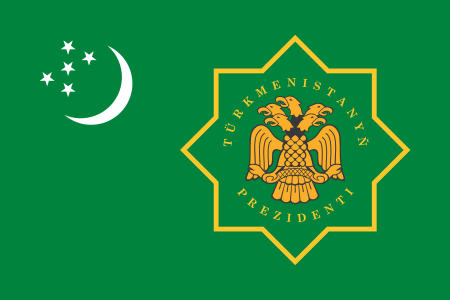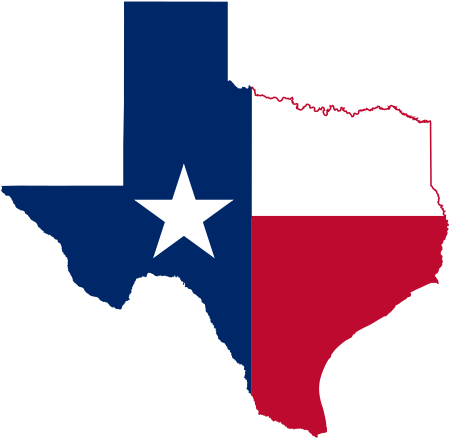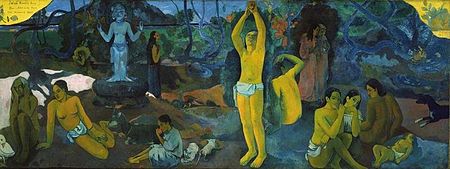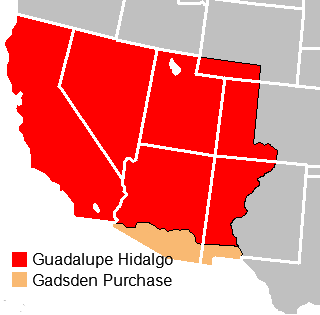David Wilmot
| |||||||||||||||||||||||||||||||||||||||||||||||||||
Read other articles:

土库曼斯坦总统土库曼斯坦国徽土库曼斯坦总统旗現任谢尔达尔·别尔德穆哈梅多夫自2022年3月19日官邸阿什哈巴德总统府(Oguzkhan Presidential Palace)機關所在地阿什哈巴德任命者直接选举任期7年,可连选连任首任萨帕尔穆拉特·尼亚佐夫设立1991年10月27日 土库曼斯坦土库曼斯坦政府与政治 国家政府 土库曼斯坦宪法 国旗 国徽 国歌 立法機關(英语:National Council of Turkmenistan) 土�…

Supreme Court of the Republic of TexasSeal of the Republic of TexasEstablished1836LocationAustin, TexasComposition methodCongressional electionAuthorized byConstitution of the Republic of TexasNumber of positionsChief Justice, 7 District Judges (ex officio members) Part of a series on the History of Texas Timeline Pre-Columbian Texas Early Spanish explorations 1519–1543 French Texas 1684–1689 Spanish Texas 1690–1821 Mexican Texas 1821–1836 Republic of Texas 1836–184…

「アプリケーション」はこの項目へ転送されています。英語の意味については「wikt:応用」、「wikt:application」をご覧ください。 この記事には複数の問題があります。改善やノートページでの議論にご協力ください。 出典がまったく示されていないか不十分です。内容に関する文献や情報源が必要です。(2018年4月) 古い情報を更新する必要があります。(2021年3月)出典�…

La Géométrie de René Descartes Género Ensayo Tema(s) Filosofía Idioma Francés Título original La Géométrie Texto original La Géométrie en WikisourceEditorial Fizmatlit Fecha de publicación 1638 [editar datos en Wikidata] La Géométrie es uno de los apéndices del Discurso del Método, de René Descartes, publicado en 1637. Los otros dos son La Dioptrica (Óptica) y Los Meteoros (Meteorología). La intención de estos anexos a la obra principal era proporcionar ejemplo…

يفتقر محتوى هذه المقالة إلى الاستشهاد بمصادر. فضلاً، ساهم في تطوير هذه المقالة من خلال إضافة مصادر موثوق بها. أي معلومات غير موثقة يمكن التشكيك بها وإزالتها. (يوليو 2019) الحدثكأس الكؤوس الأوروبية 1961–62 أتلتيكو مدريد نادي فيورنتينا 3 0 التاريخ5 سبتمبر 1962 الملعبإم إتش بي أرينا…

Частина серії проФілософіяLeft to right: Plato, Kant, Nietzsche, Buddha, Confucius, AverroesПлатонКантНіцшеБуддаКонфуційАверроес Філософи Епістемологи Естетики Етики Логіки Метафізики Соціально-політичні філософи Традиції Аналітична Арістотелівська Африканська Близькосхідна іранська Буддійсь…

本條目存在以下問題,請協助改善本條目或在討論頁針對議題發表看法。 此條目需要編修,以確保文法、用詞、语气、格式、標點等使用恰当。 (2013年8月6日)請按照校對指引,幫助编辑這個條目。(幫助、討論) 此條目剧情、虛構用語或人物介紹过长过细,需清理无关故事主轴的细节、用語和角色介紹。 (2020年10月6日)劇情、用語和人物介紹都只是用於了解故事主軸,輔助讀�…

يفتقر محتوى هذه المقالة إلى الاستشهاد بمصادر. فضلاً، ساهم في تطوير هذه المقالة من خلال إضافة مصادر موثوق بها. أي معلومات غير موثقة يمكن التشكيك بها وإزالتها. (ديسمبر 2018) حور أويبري (فرعون) Hor Awibreحور أويبري (فرعون)فرعون مصرسبقهأمني إنتف الرابع (أمنمحات الثاني)تبعهسوبك حتب الثان…

American political advocacy organization R Street InstituteFormation2012TypeThink tankHeadquarters1212 New York Ave. NW, Suite 900Washington, DC 20005LocationWashington, D.C.PresidentEli LehrerRevenue (2015) $4,164,948[1]Expenses (2015)$3,471,241[1]Websitewww.rstreet.org The R Street Institute is an American center-right think tank headquartered in Washington, D.C.[2] The institute's stated mission is to engage in policy research and outreach to promote free markets and l…

Field of science involving control of matter on atomic and (supra)molecular scales For the materials science journal, see Nanotechnology (journal). For other uses of Nanotech, see Nanotech (disambiguation). Fullerene nanogears Part of a series of articles onNanotechnology History Organizations Popular culture Outline Impact and applications Nanomedicine Nanotoxicology Green nanotechnology Hazards Regulation Nanomaterials Fullerenes Carbon nanotubes Nanoparticles Molecular self-assembly Self-asse…

Overview of Iraqi history Part of a series on the History of Iraq Prehistory Ubaid period Hassuna culture Halaf culture Halaf-Ubaid Transitional period Samarra culture (Eridu) Uruk period Jemdet Nasr Period Bronze Age Sumer Hamazi Assyria Akkadian Empire Gutian Dynasty Neo-Sumerian Empire Isin-Larsa period Simurrum Babylonia First Babylonian Empire Kassites Middle Assyrian Empire Neo-Assyrian Empire Neo-Babylonian Empire Iron Age Achaemenid Assyria Seleucid Babylonia Parthian Babylonia Roman Mes…

Kantor Administrasi dan Ekonomi Utama SSSS-Wirtschafts-VerwaltungshauptamtSS-WVHAHeinrich Himmler di situs konstruksi SS, 1940.Informasi SS-WVHADibentuk1 Februari 1942[1]Nomenklatur sebelumnyaHauptamt Verwaltung und WirtschaftHauptamt Haushalt und BautenDibubarkan8 Mei 1945Wilayah hukum JermanOccupied EuropeKantor pusatUnter den Eichen 125-135, Lichterfelde, Berlin52°27′5.12″N 13°18′35.24″E / 52.4514222°N 13.3097889°E / 52.4514222; 13.3097889MenteriHei…

State park in New York, United States This article is about the Atlantic Ocean park. For the Saint Lawrence River park, see Robert Moses State Park – Thousand Islands. Robert Moses State ParkA lifeboat on the beach atRobert Moses State ParkLocation of Robert Moses State Parkwithin New York StateTypeState parkLocationFire Island, New YorkNearest cityBabylon, New YorkCoordinates40°37′23″N 73°16′48″W / 40.623°N 73.28°W / 40.623; -73.28Area875 acres (3.54&#…

Cecilia de Baden Gran duquesa de Rusia Información personalNombre completo Cecilia AugustaOtros títulos Princesa de Holstein-Gottorp Princesa de BadenNacimiento 20 de septiembre de 1839Karlsruhe, Gran Ducado de BadenFallecimiento 12 de abril de 1891 (51 años)Járkov, Imperio rusoSepultura Catedral de San Pedro y San Pablo, San PetersburgoReligión Ortodoxa rusa (antes del matrimonio: luteranismo)FamiliaCasa real ZähringenPadre Leopoldo I de BadenMadre Sofía Guillermina de SueciaCónyu…

Peta distrik Chitoor di negara bagian Andhra Pradesh ditunjukkan dengan warna hitam Distrik Chittoor adalah ditrik paling selatan di negara bagian Andhra Pradesh. Luas wilayah Chittoor adalah 15.151 km ² yang merupakan salah satu distrik terbesar di Andhra Pradesh. Di utara berbatasan dengan Distrik Anantapur, Kadapa dan Nelluru . Karena lokasinya di sebelah selatan berbatasan dengan negara di selatan dan tenggara oleh negara bagian Tamil Nadu dan di sebelah barat oleh negara bagian Karnat…

Baesa, karya Guillaume Rouillé dalam Promptuarii Iconum Insigniorum Baesa (Ibrani: בַּעְשָׁא, Baʿasha, artinya dia yang menghancurkan; bahasa Inggris: Baasha) adalah raja ke-3 Kerajaan Israel (Samaria) menurut Alkitab Ibrani dan Perjanjian Lama di Alkitab Kristen. Ia membasmi seluruh keturunan Yerobeam I (1 Raja-raja 15:29). Ayahnya bernama Ahia dari suku Isakhar.[1] Ia memerintah 24 tahun di Tirza. Setelah meninggal, anaknya Ela menggantikannya menjadi raja.[2]…

1893 Iowa gubernatorial election ← 1891 November 7, 1893 1895 → Nominee Frank D. Jackson Horace Boies J. M. Joseph Party Republican Democratic Populist Popular vote 206,821 174,656 23,980 Percentage 49.74% 42.00% 5.77% Results by countyJackson: 40–50% 50–60% 60–70%Boies: 30–40% 40–50% &#…

Questa voce sull'argomento stagioni delle società calcistiche italiane è solo un abbozzo. Contribuisci a migliorarla secondo le convenzioni di Wikipedia. Segui i suggerimenti del progetto di riferimento. Voce principale: Associazione Sportiva Gubbio 1910. A.S. Gubbio 1910Stagione 2007-2008Sport calcio Squadra Gubbio Allenatore Raimondo Marino poi Marco Alessandrini Presidente Marco Fioriti Serie C210º posto nel girone B. Maggiori presenzeCampionato: Groppioni (33) Miglior marcatoreC…

Long-duration mission to the International Space Station ISS Expedition 40Promotional PosterMission typeISS Expedition ExpeditionSpace stationInternational Space StationBegan13 May 2014 (2014-05-13Z) UTCEnded10 September 2014 (2014-09-11Z) UTCArrived aboardSoyuz TMA-12MSoyuz TMA-13MDeparted aboardSoyuz TMA-12MSoyuz TMA-13M CrewCrew size6MembersExpedition 39/40:Steven R. SwansonAleksandr SkvortsovOleg ArtemyevExpedition 40/41:Gregory R. WisemanMaksim SurayevAlexander Gerst Exp…



